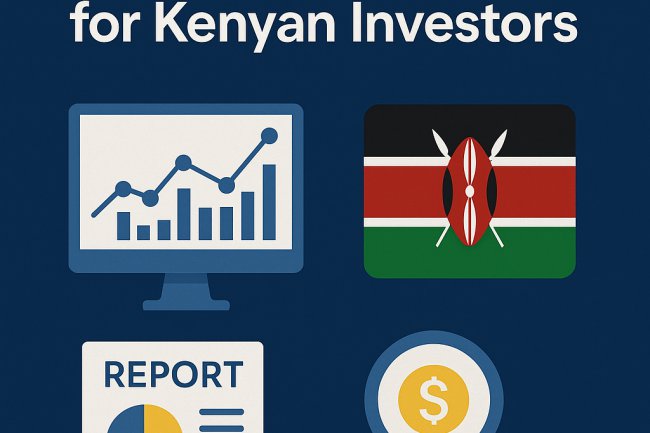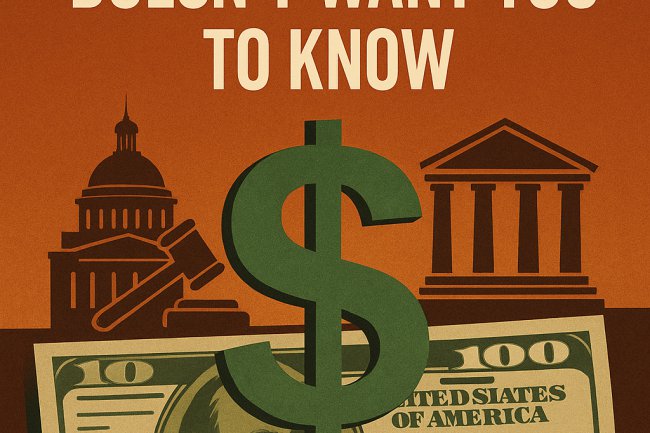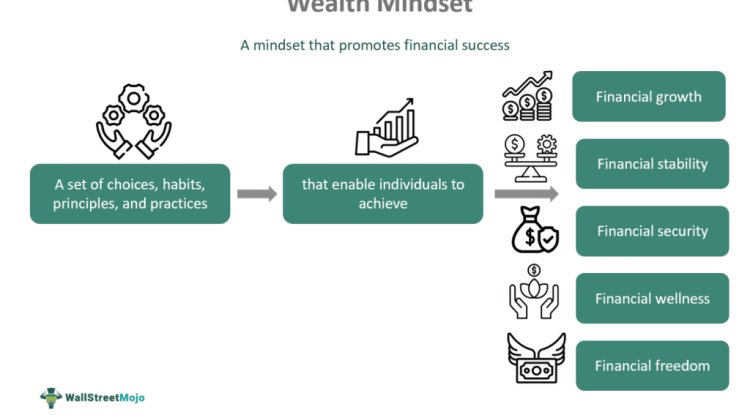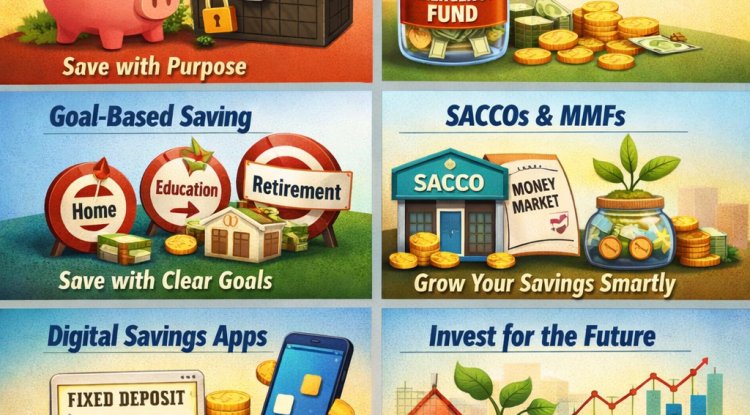Mindset and Foundations of Wealth
Discover how the right mindset, faith, and financial principles create lasting wealth. Learn to make money work for you and build a purpose-driven life.
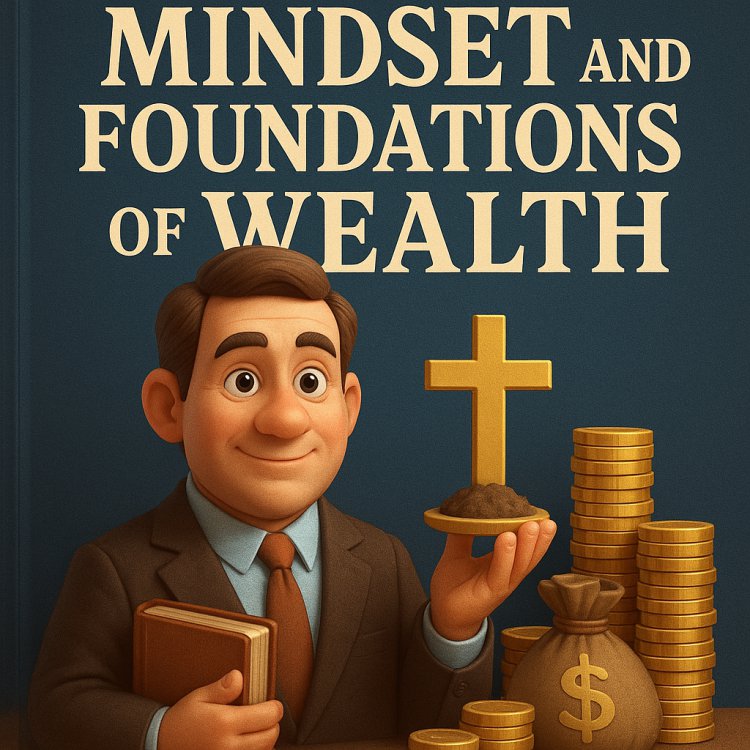
Introduction: The True Beginning of Wealth
Many people chase money, yet few ever achieve true financial freedom. They work longer hours, take on multiple jobs, and increase their income — but still find themselves living paycheck to paycheck. Why? Because wealth begins in the mind long before it shows up in your bank account.
Before money habits, investment portfolios, or savings goals come into play, there is something more foundational: the mindset behind your financial behavior. Your beliefs, fears, and expectations about money silently dictate your outcomes.
To achieve lasting prosperity, you must first understand the psychology that drives your financial decisions, break the mental barriers that limit you, and adopt a wealth mindset rooted in purpose, stewardship, and vision.
In this guide, we’ll explore the mindset and foundations of wealth — through both practical financial principles and biblical wisdom — to help you build not just riches, but financial peace and freedom.
1. Understanding the Psychology of Money
Money is not just numbers; it’s emotional. Every financial decision — from what you buy to how much you save — is influenced by how you think and feel about money.
A. Money Reflects Your Inner World
Money simply amplifies who you are. If you are disciplined, money will magnify your discipline. If you are impulsive, money will magnify your chaos. This is why personal transformation must precede financial transformation.
Your financial situation today is a reflection of your internal beliefs and habits. You cannot outperform your mindset. If you secretly believe money is evil, scarce, or unattainable, you’ll subconsciously push it away — even if you earn more.
B. The Emotional Triggers Behind Spending and Saving
People rarely spend because of logic; they spend because of emotion. Retail therapy, lifestyle upgrades, and social comparison are all emotional responses to deeper psychological needs — validation, security, or belonging.
Understanding your emotional patterns is the first step toward financial maturity. Ask yourself:
-
Why do I feel anxious when I don’t spend?
-
Why do I avoid checking my bank balance?
-
Why do I feel guilty when I earn more than others?
The moment you become aware of these triggers, you gain the power to choose financial wisdom over impulse.
C. Money Myths from Childhood
Many people grow up hearing statements like:
-
“Money doesn’t grow on trees.”
-
“Rich people are greedy.”
-
“We can’t afford that.”
-
“God wants us to be poor to stay humble.”
These phrases create subconscious money scripts that shape how we view prosperity. You must unlearn these limiting beliefs and replace them with truth — that money is a tool, not a god; a servant, not a master.
D. How the Wealthy Think Differently
The wealthy don’t see money as the goal — they see it as a resource for building systems, solving problems, and creating impact. They don’t trade time for money; they trade ideas for value. They focus on ownership, not just income.
Psychologically, wealth builders:
-
Delay gratification
-
Think in decades, not days
-
Seek knowledge before opportunities
-
View losses as lessons, not failures
In essence, the mind of a millionaire is built long before the money arrives.
2. Breaking the Scarcity and Poverty Mindset
Before you can build wealth, you must escape the mental poverty that keeps millions trapped in cycles of financial frustration.
A. What Is the Scarcity Mindset?
The scarcity mindset is the belief that there is never enough — not enough money, time, or opportunity. It’s the mindset that says:
“If they win, I lose.”
“There’s only one slice of the pie.”
“I can’t invest — I barely survive.”
Scarcity thinking makes people hoard, compete, and fear risk. It keeps them small — even when opportunities knock.
B. The Abundance Mindset
By contrast, an abundance mindset believes that there’s always more — more ideas, more clients, more open doors. It doesn’t deny challenges; it simply refuses to be defined by them.
This mindset allows you to:
-
Take calculated risks
-
See opportunity in crisis
-
Collaborate instead of compete
-
Invest in growth instead of hoarding in fear
C. How Fear Blocks Financial Growth
Fear of failure, loss, or judgment can paralyze potential. Many people never start a business, invest in stocks, or take financial courses because they fear making mistakes. Ironically, the fear of losing keeps them losing.
Faith and fear cannot coexist in your finances. The wealthy take action despite uncertainty; the poor wait for perfect conditions — which never come.
D. The Difference Between Poor, Middle-Class, and Wealthy Thinking
| Category | Focus | Typical Behavior | Result |
|---|---|---|---|
| Poor | Survival | Spends all income | Stays in debt |
| Middle-Class | Comfort | Buys liabilities disguised as assets | Lives paycheck to paycheck |
| Wealthy | Freedom | Buys true assets that generate income | Achieves independence |
The key isn’t the amount of money you make — it’s the mindset that governs how you use it.
E. How to Reprogram Your Mind for Abundance
-
Gratitude – Start each day acknowledging what you have. Gratitude multiplies increase.
-
Faith Confession – Declare abundance aligned with God’s Word: “The Lord is my Shepherd, I shall not want.”
-
Education – Learn about money management, investing, and entrepreneurship. Ignorance is expensive.
-
Action – Replace fear with small, consistent steps. Faith without works is dead.
When your mind is renewed, your financial reality follows.
3. Working for Money vs. Making Money Work for You
Most people are taught to work for money. The wealthy learn to make money work for them.
A. The Employee Trap
From school, society trains us to trade time for a paycheck. We are told to get a job, work hard, and retire someday. While hard work is honorable, it’s not enough. Time is a limited resource — if your income depends on it, your financial growth will always be capped.
True wealth begins when your money starts earning more money — even while you sleep.
B. The Investor’s Mindset
Investors understand that every dollar is a potential employee. Instead of spending it immediately, they assign it to work — through stocks, businesses, real estate, or digital assets.
To make money work for you:
-
Build multiple income streams
-
Reinvest profits into scalable assets
-
Avoid consumer debt
-
Let compounding interest and time be your allies
C. Leverage: The Secret of the Wealthy
Wealthy individuals use leverage — not just financial, but also time and knowledge leverage. They delegate, automate, and systematize.
They use people, platforms, and principles to multiply results.
For example:
-
An online business uses the internet to serve millions simultaneously.
-
An investor uses capital markets to earn passive returns.
-
A leader uses mentorship to grow teams that duplicate success.
D. Biblical Example: The Parable of the Talents
In Matthew 25:14–30, Jesus tells of a master who gave talents (money) to three servants. Two invested and multiplied it. One buried his out of fear. The first two were rewarded; the fearful one was rebuked.
This parable reveals timeless financial truth: God blesses productivity, not passivity. Stewardship is not just about keeping — it’s about increasing.
When you make money work for you, you honor both your potential and your purpose.
4. Biblical and Faith-Based Principles of Wealth
Faith and finance are not enemies. In fact, true financial freedom begins when you align your money with divine purpose.
A. Stewardship: God Owns, You Manage
Psalm 24:1 reminds us, “The earth is the Lord’s, and everything in it.” You are not the owner; you are the steward. This mindset eliminates pride and fear — because God is the true source of provision.
A good steward multiplies what is entrusted to them. Whether it’s talent, time, or treasure — your responsibility is to make it grow.
B. The Power of Tithing and Generosity
Generosity is not loss; it’s seed sowing. The Bible says, “Give, and it will be given to you.” Tithing trains your heart to trust God over money.
Giving breaks the spirit of greed and activates abundance.
The wealthiest people — both believers and non-believers — practice generosity. It’s a universal law of increase.
C. Diligence and Productivity
Proverbs 10:4 teaches: “Lazy hands make for poverty, but diligent hands bring wealth.”
Wealth creation requires intentional effort. Work is divine — not a curse.
When you combine diligence with wisdom, increase is inevitable.
D. Faith and Financial Action
Faith without financial discipline is fantasy. You must act on what you believe:
-
Budget your resources
-
Save strategically
-
Invest consistently
-
Give cheerfully
When you mix prayer with planning and purpose, prosperity follows.
5. Developing a Purpose-Driven Financial Vision
Money without purpose leads to vanity; purpose without money leads to limitation.
Your financial vision should align with your God-given mission.
A. Defining Your “Why”
Ask yourself: Why do I want to be wealthy?
Is it to impress others — or to impact others?
Purpose-driven wealth is about freedom to serve, give, and fulfill destiny.
B. Designing Your Wealth Blueprint
A financial vision gives direction to your daily decisions. To create one:
-
Clarify your goals: retirement, business, real estate, ministry, etc.
-
Create a financial map: budget, savings plan, investment plan.
-
Review regularly: progress must be monitored and adjusted.
-
Include legacy planning: think beyond yourself.
C. Wealth and Generational Impact
Proverbs 13:22 says, “A good man leaves an inheritance to his children’s children.”
True wealth is not measured by cars or houses, but by how long your impact lasts after you’re gone.
Build systems, not just savings. Train your children in financial wisdom.
6. Bonus: How Your Beliefs Shape Your Financial Destiny
What you believe about money determines how you behave with money — and how money behaves with you.
A. The Subconscious Connection
Your subconscious mind governs 90% of your financial habits. If you believe you’re undeserving, you’ll sabotage success. If you believe money is abundant, you’ll attract opportunities that align with that faith.
Change your beliefs, and your finances will follow.
B. The Power of Words
Proverbs 18:21 says, “Death and life are in the power of the tongue.”
Your declarations shape your reality.
Instead of saying “I’m broke,” say “I’m learning to manage wealth wisely.”
Instead of “Money is hard to make,” say “Opportunities are finding me daily.”
C. Renewing the Mind Daily
Romans 12:2 instructs us to “be transformed by the renewing of your mind.”
Read financial books, study the Bible’s wisdom on stewardship, listen to mentors who live what they teach, and feed your faith consistently.
Your beliefs are the soil; your wealth is the harvest.
7. Conclusion: Wealth as a Calling
True wealth is not just having more — it’s becoming more.
It’s using your gifts, knowledge, and resources to glorify God and serve humanity.
Financial freedom is not the destination; it’s the foundation for a life of purpose.
As you renew your mind, practice stewardship, and apply faith-driven principles, remember:
Money is a tool, not a trophy.
Use it to build, bless, and better the world.
The journey to financial freedom begins with one decision — to think differently.
Written by: Maertin K
Category: Faith-Based Finance & Wealth Psychology
Publisher: Wealth Global Insight
What's Your Reaction?








